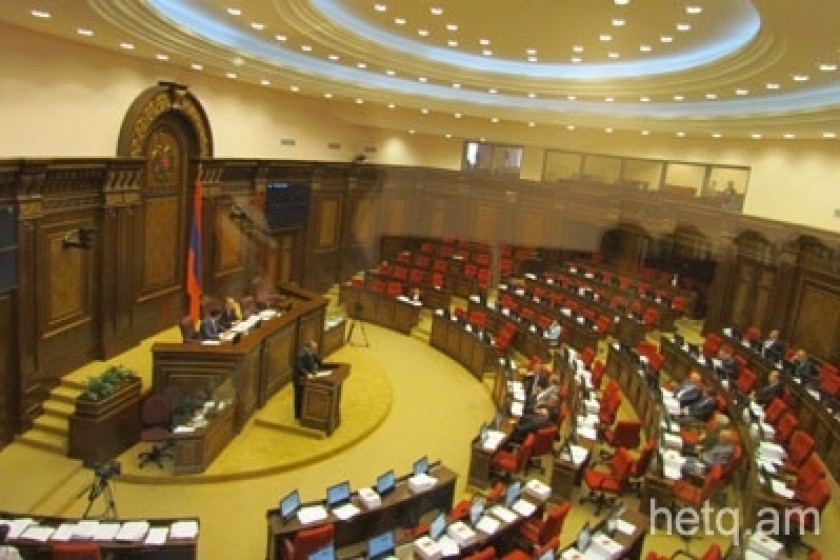
Armenia's Opposition Wastes Time Debating "Bogus" Political Issues
Given the ongoing debate on the issue of whether to use a proportional or majoritarian electoral procedure in Armenia, you would think that this is the prime problem facing the country.
In fact, the issue is a bogus one.
It’s not a question of the advantages or disadvantages of using one procedure over the other. In Armenia, both are unproductive given the absence of any real political system.
The vast majority of political parties in Armenia are mere conduits to serve the interests of this or that individual, and the others become such conduits, absolutely neglecting the ideological side of the issue.
Armenia’s parliament has long since lost its political significance, turning into a servant for ruling elite and the president. In this milieu, where the parties and the parliament do not execute their political functions, the social and political demand to shape quality MP’s is impossible to achieve.
The outcome of elections following the majoritarian system is almost always decided in advance. People are elected to parliament who have no connection at all to legislative activity. By the same token, similar people are also elected from political party lists.
Before the 2007 elections, the number of majoritarian seats in parliament had decreased from 75 to 41, using the same arguments as those of today’s opposition. That’s to say it assists the development of the political system and a political culture. In fact, neither was developed or created. Rather, the political arena grew even more apolitical and suffered qualitatively.
Those oligarchs that should have been swept aside due to the decrease in majoritarian seats conveniently found their way to the ballots of the leading parties and returned to the halls of the parliament.
Thus, the perfunctory growth of proportional spots led to the non-ideologization of the parties. What took form was a new anti-culture of simple political trading. Parallel to this, the parties not only failed to grow, as expected, but in fact grew small and were marginalized.
Today, there is no guarantee that a further decrease of majoritarian seats in the parliament will lead to a healthier political system. It’s because the oligarchs and big-business interests will continue to assert themselves and use the resources of the parties even more savagely.
Consequently, the real issue at stake isn’t giving preference to one or the other electoral system, but rather to sweep those circles of interest out of the political arena. This is not possible since these very interests are the essential guarantors for the reproduction of the authorities.
The reason the ruling regime today doesn’t wish to see the removal of the majoritarian system is not because of its merits, but because the regime doesn’t want to lose those circles of interest.
Supporters of the proportional system understand all of this. They know full well that such a campaign will produce no results. If the political majority rejected such a proposal one year before the elections, they will do the same one month before.
Just by the way the demand is framed, it is more than untimely.
In fact, the hullabaloo that has been created of late stems not from the proposal to reject the majoritarian system but rather from the political consensus surrounding it.
It’s this consensus, or coming together, manifested in the opposition camp that is of more real value than the content of the proposal itself. This non-formal alignment, in the run-up to the parliamentary elections, clearly shows the huge unrealized potential for forming an alternative.
It remains for these forces to correctly proceed from this commonality to the formation of a common platform.
It’s no accident that the supporters of the proportional system use one principled argument to support their case – that such a move will allow for preventing a majority of election fraud.
In reality, such a move has nothing directly to do with election fraud.
Those responsible for election fraud remain the same - the authorities.
The real issue that lies at the core of the electoral system debate, and the one that has united the opposition forces to collaborate remains the same.
It is the demand to guarantee free and fair elections and to promote a true arena of competition.
In this context, the regime’s refusal to go along with the proportional proposal is understandable.
The question arises as to what the opposition will do next.
While the opposition is still championing the lost cause of moving to a proportional electoral system, rather than examining the possibility of uniting their forces, the ruling regime’s major political party, the Republican Party, has already launched its election campaign.
The opposition has wasted enough time and is already late to get to the starting block.
 Videos
Videos Photos
Photos




Comments (1)
Write a comment